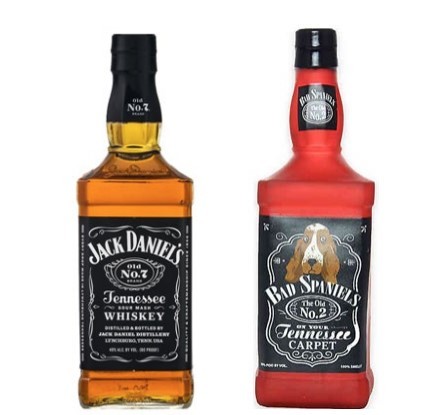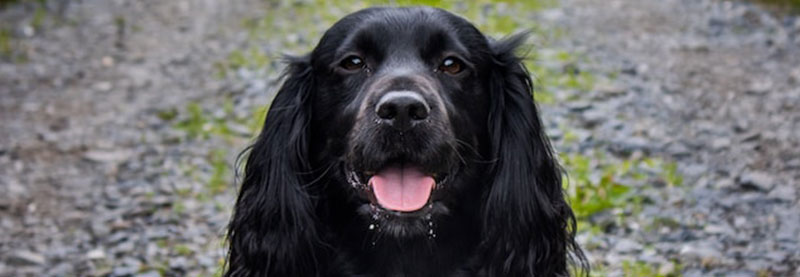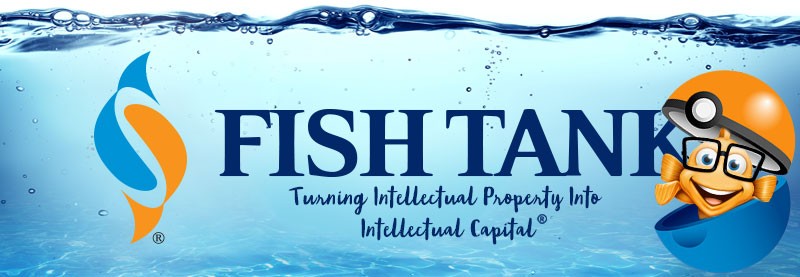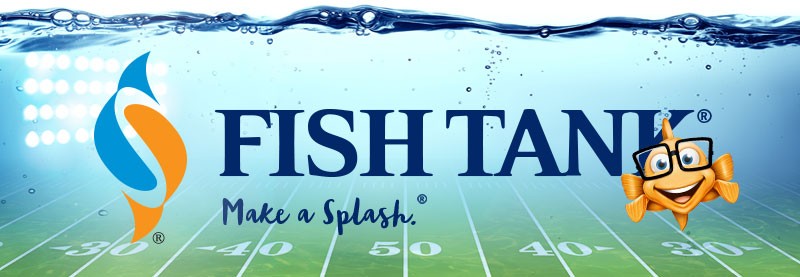Intellectual Property Insights from Fishman Stewart
Mini Article – Volume 23, Issue 6
Share on Social

Doggy Doo, Doggy Don’t: A Supreme Court Issue. (No, Really.)
When a Bad Spaniel leaves a doggy stain on a famous brand’s proverbial carpet, even the Supreme Court can have fun. Last week, in the case of Jack Daniel’s Properties, Inc. v. VIP Products LLC, the Supreme Court heard arguments from the attorneys representing Jack Daniel’s and VIP Products. At issue is a dog toy sold under the name Bad Spaniels with poop-themed jokes all over the label in parody of—or trademark infringement of—Jack Daniel’s’s trademarks.

Jack Daniel’s isn’t the only brand that got its own Silly Squeakers dog toy. VIP Products sells a line of beverage-themed pet toys, including Mountain Drool, Smella Arpaw, and Heinie Sniffin, among many others. All of the dog toys resemble the beverage bottles and cans their names call to mind, in terms of shape, color scheme, and label details.
VIP Products contends that its dog toy is a parody of the Jack Daniel’s whiskey bottle. Parody is a well-established defense to a claim of copyright infringement. The copyright laws are intended to foster creativity and to encourage artistic expression. In the context of creative works and copyright law, parody enjoys strong First Amendment protections.
A claim of parody in the trademark context, like the “Bad Spaniels” use, faces an uphill battle because the allegedly infringing use of the trademark owner’s trademark, slogan, product design, and the like are in the context of a commercial use. The trademarks (or parody thereof) are being used in association with the sale of another company’s products. This is in contrast to noncommercial use of another’s trademark for parody, such as Andy Warhol’s famed painting of the Campbell’s soup cans that included use of the Campbell’s trademark.
Will consumers buy the dog toys because they believe they are made by or endorsed by Jack Daniel’s? Will they buy the dog toys because they like the humorous take on the Jack Daniel’s label? Does the Bad Spaniels dog toy harm the Jack Daniel’s brand, or will consumers see it as an obvious funny take on the Jack Daniel’s label? Even if consumers see the obvious joke, would they nonetheless perceive it as affiliated with or sponsored by Jack Daniel’s?
The arguments before the Supreme Court yielded many laughs. Will this translate to a successful defense of parody? That remains to be seen.
Michelle Visser is a partner of Fishman Stewart, with over 25 years of experience practicing trademark law with other members of the firm’s Trademark Group. Besides going on adventures with her husband Kent, she loves attending to her two dogs, which were her inspiration for today’s article (photographed below).

Published March 31, 2023


Related Content from Fishman Stewart
In a recent decision, the U.S. Court of Appeal for the Eighth Circuit affirmed a jury verdict holding that the use of the "Success Kid" meme by a congressman's reelection campaign for fundraising purposes did not qualify as fair use.
In February 2024, proposed legislation was introduced in US House of Representatives which would extend copyright protection to golf courses. The bill is titled “Bolstering Intellectual Rights against Digital Infringement Enhancement Act” or the “BIRDIE Act”.
June is Pride Month, which honors the 1969 Stonewall Uprising in Manhattan and recognizes the impact that lesbian, gay, bisexual, and transgender (LGBTQ+) individuals have had on history locally, nationally, and internationally. The United States Patent and Trademark Office flies the Pride Flag and promotes the Pride community’s contributions with programming offered annually.
June is Pride Month. This year we are celebrating with some IP tips for drag performers! Drag performers can protect their intellectual property by registering the copyrights in their original works of music, choreography, and comedy sketches.
You’re rarely more than a few yards from Finny’s favorite chips, semiconductor chips to be precise. But what exactly is a semiconductor chip?
"May the 4th Be With You," also known as Star Wars Day, takes place annually on May 4th. The phrase is a pun on the iconic Star Wars catchphrase "May the Force be with you."
First, a big “thank you” to all our readers who have given feedback on our newsletter. We appreciate your interest and insights. It is always a treat to hear from you! Second, we wanted to provide you with updates on some of our most popular articles
“Palworld”— a computer game created and published by Japanese developer Pocket Pair. Released as an early access game in January 2024, it sold over seven million copies on the computer platform Steam in the first five days and had nearly 20 million players in the first two weeks.
This year’s Super Bowl featured a thrilling overtime victory for the Kansas City Chiefs over the San Francisco 49ers. With estimates as high as 123 million viewers, America's premier sporting event also serves as a grand stage for creativity and intellectual property protections that enhance the game’s success.
Valentine’s Day is just around the corner and jewelry sales are usually around $6 billion USD in the United States alone. In 2021, the US Customs and Border Protection agency seized over $1 billion USD worth of counterfeit pieces of jewelry.
IDENTIFYING, SECURING AND ADVANCING CREATIVITY®











